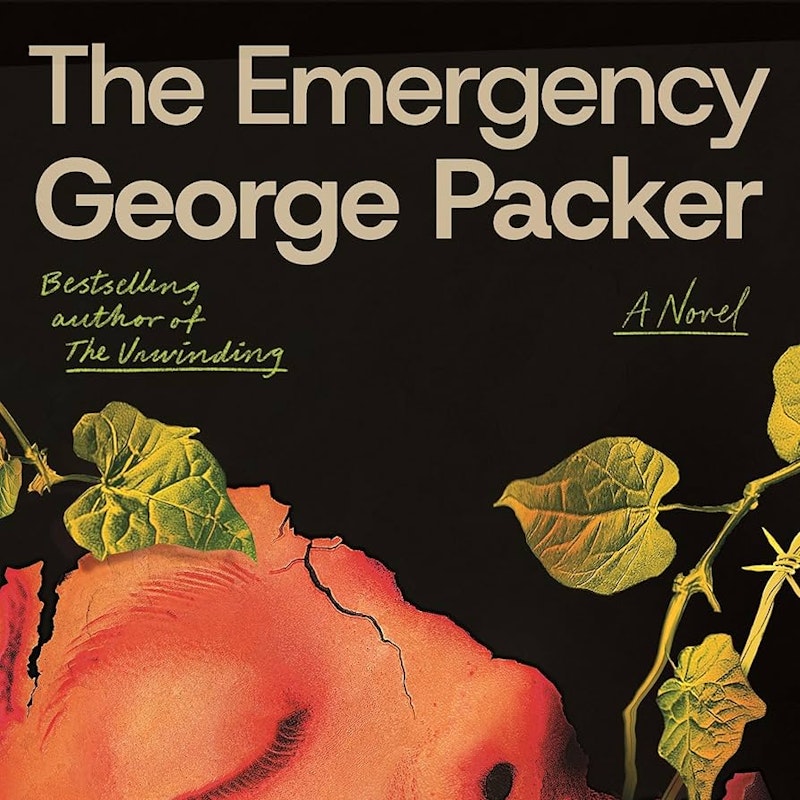Every so often I click on The Atlantic’s website, hoping that a non-Trump article will be posted. Former New York Times reporter Michael Powell is my favorite at the site, and one of his long essays can cleanse the horrid nonsense of Jonathan Chait, David Frum or Tom Nichols. I was inclined the other day to pass over George Packer’s “A Post-Literate Age: Journalism and fiction are both essential to a thriving democracy,” fearing another jeremiad about how no one, especially kids and young men and women, reads anymore, preferring to digest short squalls of idiocy on social media. But Packer’s story was more than that: I agree with almost none of his politics—the 64-year-old with a pedigree from Yale and a longtime staff writer at The New Yorker—and I won’t touch his forthcoming novel The Emergency, which he describes as a “fable,” in which society collapses, generations divide over politics, and violence sets in. Sounds like a #NeverTrump novel for those who can’t get enough of that rush in the mainstream media.
But I hope Packer’s novel sells a lot of copies (probably on Amazon, which Packer likely grudgingly accepts as a purveyor) because best-selling quality fiction is at least a double in today’s wretched cultural climate, even when the home team is down by eight runs in the seventh inning.
Packer lards his essay with anti-Trump rhetoric, blaming the President, and the public, for what he, naturally, considers the peril to democracy. He writes: “The insurrection of January 6 happened before our eyes and produced about three news cycles of almost universal horror before that consensus began to succumb to the assault of partisan revisions and elisions, lies, alternative facts, and conspiracy theories that dominate our media and pollute our minds.”
That’s not accurate: journalists like Packer, his colleagues at The Atlantic, New Yorker and the worst offender, The New York Times, didn’t end their coverage of J6 after “three news cycles” but kept it up until the 2024 election. Trump’s actions on January 6th, 2021, denying that Biden won the Covid election, were cavalier at best, despicable at worst, but the exaggeration of its importance—Biden was inaugurated, there was no coup, and Trump was impeached but not convicted before he left office. Packer’s correct that half of the country’s voters eventually sloughed off J6, agitated by the Biden Administration’s spending policy, and the rise of prices at the supermarket, and not insignificantly the media’s constant drumbeat about that one day.
He continues: “’Legacy media’ has become an insult, but its fall from authority is an epistemic catastrophe. Most of the public has no idea how much effort and money newsgathering requires, how many rounds of reporting, editing, and fact-checking a story goes through before it reaches the public and drowns in the new media ‘ecosystem’… [Journalists] still believe that facts matter.”
As someone who still reads newspapers—two print editions delivered each morning, in addition to many websites—I know that Packer’s epistle to the hardworking “journalists” isn’t true today. Does he really believe that The New York Times runs stories that’ve gone through “rounds of reporting, editing and fact-checking”? As he knows, the media he and I grew up on has disappeared: when mass layoffs at newspapers started early this century with the internet’s rapid ubiquity and then the 2008-09 financial collapse, the researchers and fact-checkers were the first to go. Very few “news stories” today are bolstered by on-the-record sources from both sides of an issue; it’s mostly “anonymous sources,” some undoubtedly made up by a reporter in an effort to rush-publish a story online.
(An aside: newspapers were never as thorough with fact-checking as is now believed. In the 1990s, I was contacted by various Times media reporters and there were always mistakes. For example, a haughty Timesman badgered me on the phone in ‘91, and asked me to spell my last name three times—Smith is a tough one—and then inaccurately botched founding dates of New York Press, Baltimore’s City Paper and the year I graduated from Johns Hopkins University. When the story was published, I just shrugged, and figured it was par for the miniature golf course.)
Packer continues: “So in late 2021 or early 2022, around the time truth disappeared, I started to think about writing a novel.” He notes that his two novels in the 1990s weren’t commercially successful, and wonders, “For one thing, did anyone still read fiction? I mean literary fiction, the kind that aspires to complex characters, subtle themes, and careful attention to prose style. Those novels are gone from best-seller lists—it’s all sexy dragons now.” He’s not entirely wrong, as a scan of last Sunday’s Times “Book Review” Best Sellers list confirmed. Mitch Albom, Reese Witherspoon and Nicholas Sparks were prominent in fiction sales; Kamala Harris’ memoir and celebrity nonsense dominated the non-fiction category. I’d guess that Thomas Pynchon’s Shadow Ticket will soon make the list, and he laps Reese Witherspoon.
But it’s not as dire as Packer speculates—acknowledging that as a daily fiction reader I’m in an elderly demographic. Sally Rooney’s wonderful Intermezzo from 2024 was a best-seller, as was John Boyne’s Elements (a quartet of novellas) in the past two years. Fredrik Backman’s Among Friends sold well (as his novels usually do) and Alexander Starritt’s Drayton and Mackensie, perhaps my favorite novel this year, wasn’t about dragons.
I’m rooting for Packer’s The Emergency to sell a million copies, even though I won’t read it. It’s good for cultural business.
—Follow Russ Smith on Twitter: @MUGGER2023

